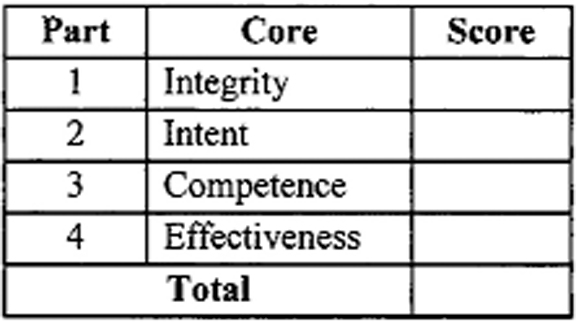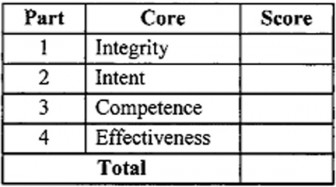Dear Editor,
2011 appears to be a climactic year for party givers, as well as partygoers (also known as party crossovers).
It is peculiarly a time which anticipates ribald language and behaviour, admixed with music and dancing, and compounded with the mashramanic gyrations of principle and consistency, of loyalty and integrity.
It has become a season heavy with the traffic of pedestrian types who have been induced to ignore the ‘no right turn’ sign, as they crawl down a one-way street leading into a tunnel illumined only by the blinding light of deceit.
It is an interesting construct in which there is no substantive centre, but only unsustainable sides – mere props. Each ‘pedestrian’ reaches out – for a side to lean against, and to find support for the falling or failing centre of his or her being, oblivious of the patent lack of self-belief and self-respect – leading to the disloyalty that is portrayed to those very persons whom, in utter vanity, they seek to lead.
And yet those who welcome these recruits on their tunnelled journey, overlook the fact that they themselves have become only a station which will soon convert into another platform for the next launching of errant egos. The more cautious of these desperadoes, overcome by the onrush of depravity, must well reflect on the sustainability of this synthetic meshing of ambitions, and on the utility of defective ‘resources’ being used to weld individual masquerades into harmonic bands.
Who are trustworthy, and who are not? For of a fact trust is, and must be, the real binding element. It is the only one that will last. To quote Stephen Covey, author of The Speed of Trust it is the “one thing that is common to every individual, relationship, team, family, organization, nation, economy, and civilization throughout the world – one thing which, if removed, will destroy the most powerful government, the most successful business, the most thriving economy, the most influential leadership, the greatest friendship, the strongest character, the deepest love.”
Our society has historically experienced a profound absence of trust – within and between cultures, and communities. Ironically we have thrived in this vacuum. Contradictorily its very absence seems to have energised party givers and goers alike, towards achieving significant levels of counter-productivity, of which they are nevertheless truly proud.
What a wasteland into which those who now proclaim partnership, have progressed from a point in their recent history of expulsion of their own membership! How is the next dispensation to be trusted?
It was the great Mahatma Gandhi who warned: “The moment there is suspicion about a person’s motives everything he does becomes tainted.”
By that evaluation alone all the pedestrians (party givers and goers) can be considered ‘tainted’. The trouble is that such a situation can hardly, if ever, be contained. It incrementally permeates the personal, relational, organisational, institutional, as well as the societal levels.
What therefore are the implications for the complex of stakeholders whom these pedestrians have pledged to serve – civil society, business partners, investors? Will any future leadership find or rediscover its core – of credibility. Character must perforce match competence.
In my book Gandhi is not too exotic an example to quote. Certainly Stephen Covey did not think so, as he recounted the following story in The Speed of Trust.
“A great example of congruence is Mahatma Gandhi. At one point in his life, he was invited to speak before the House of Commons in England. Using no notes, he spoke for two hours and brought an essentially hostile audience to a rousing standing ovation. Following his speech, some reporters approached his secretary, Mahadev Desai, incredulous that Gandhi could mesmerize his audience for such a long time with no notes. Desai responded:
“What Gandhi thinks, what he feels, what he says, and what he does are all the same. He does not need notes… You and I, we think one thing, feel another, say a third, and do a fourth, so we need notes and files to keep track.”
“Gandhi was not only congruent within himself, he was also congruent with the principles he stood for. Not only did he have roots, he had a taproot that plunged deep into the reservoir of timeless principles that govern in life.”
As can be imagined, however, there are many other (businesslike) perspectives. For example every contemporary businessman must know of the American Warren Buffett, CEO, Berkshire Hathaway, and renowned as one of the richest men in the world. He has this to say:
“I look for three things in hiring people. The first is personal integrity, the second is intelligence, and the third is a high energy level. But if you don’t have the first, the other two will kill you.”
Notwithstanding the above, I have created my own scorecard below for the pedestrians to complete:
Hopefully the result will help them to decide on their true value, and of that to their new ‘dancing’ parties; not to mention the level of their effrontery to the citizenry as a whole.
Yours faithfully,
E B John







